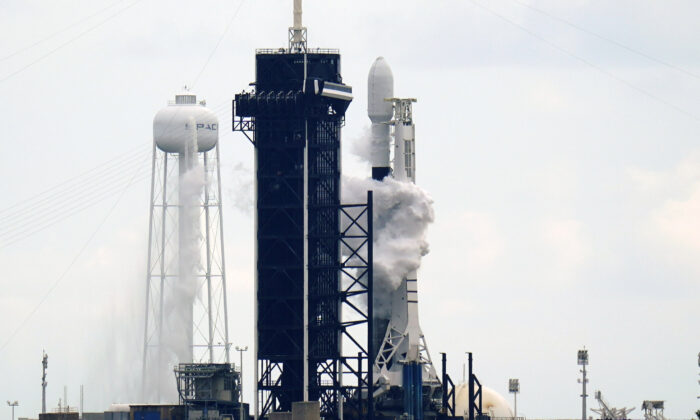McConnell: Senate Will Vote Next Week Confirm Barrett to Supreme Court
Canada’s telecommunications regulator has given Elon Musk’s Space Exploration Technologies Corp. (SpaceX) a licence allowing the company to provide satellite internet service to rural Canadians.
The Canadian Radio-television and Telecommunications Commission sent a letter to SpaceX’s chief financial officer Bret Johnson informing him it has approved the company’s application for the Basic International Telecommunications Services (BITS) licence. The BITS licence would authorize SpaceX to provide international telecommunications services between Canada and other countries.
The CRTC said it has received and reviewed 2,585 comments regarding SpaceX’s BITS application since the company filed it on May 15. The majority of the comments came from Canadians residing in remote parts of the country, according to CBC News.
The BITS licence will enable SpaceX to bring its Starlink Program to rural Canadians. The program aims to “deliver high speed broadband internet to locations where access has been unreliable, expensive, or completely unavailable” through a constellation of low-Earth orbit satellites.
It is unclear when the internet service will be available in rural areas.
Starlink currently targets markets in northern United States and Canada, and is looking to expand to global coverage in 2021. Musk, the founder and CEO of SpaceX, has said beta tests are already underway.
“Once these satellites reach their target position, we will be able to roll out a fairly wide public beta in northern US & hopefully southern Canada,” he said in a Twitter post on Oct. 6.
SpaceX has been consecutively launching batches of Starlink satellites since May 2019, with plans to ultimately build an interconnected network of 12,000 satellites.
Concerns have been raised that Starlink and similar megaconstellation initiatives engender space debris and light pollution, which can significantly interfere with space observations.
The United Nations Office for Outer Space Affairs and the International Astronomical Union opened a four-day online workshop titled Dark and Quiet Skies for Science and Society on Oct. 8, hoping to raise public awareness about the issue.
In an interview with Space.com, an attendee at the event said the long-term goal is to convince the U.N. to “issue guidelines about protecting the night sky that will reflect a reasonable compromise between the satellite operators and the needs of astronomers.”
Musk has responded to these concerns on multiple occasions, noting that SpaceX has been doing experiments to reduce sunlight reflected from the satellites.
“It will be increasingly difficult to see Starlink satellites, as we’re actively working with the astronomer community to ensure that even the most sensitive telescopes are fine & scientific progress is not impeded,” he said in a tweet on Oct. 2.
The latest launch mission, hauling a full stack of 60 satellites, took place on Oct. 18 at the Kennedy Space Center in Florida, which brings the total number of Starlink satellites in orbit to 835.
Focus News: Elon Musk’s SpaceX Granted a Licence to Provide Satellite Internet to Rural Canada
